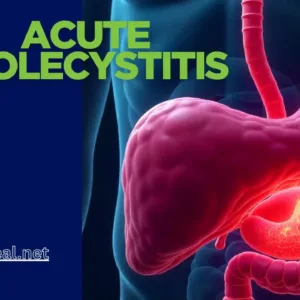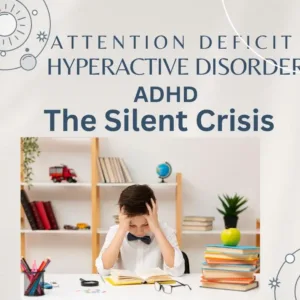Introduction;
Depression is a prevalent mental health disorder that impacts millions of individuals worldwide. It can occur at any age and is characterized by persistent feelings of sadness, hopelessness, and a loss of interest in activities. In this blog, we will explore the occurrence, causes, signs and symptoms, treatment options, and precautions for depression.
Occurrence;
– Depression can affect people of all ages, genders, and backgrounds
– It is estimated that approximately 264 million people worldwide suffer from depression
– Women are more likely to experience depression than men
– Depression can occur as a result of difficult life events, such as loss, trauma, or chronic stress
– It can also arise without any apparent trigger or reason.
Causes of Depression;
-
Biological Factors:
- Genetics: A family history of depression can increase an individual’s susceptibility.
- Brain Chemistry: Imbalances in neurotransmitters like serotonin and dopamine can contribute to depression.
- Hormonal Changes: Hormonal fluctuations, such as those during pregnancy or menopause, may trigger depressive episodes.
-
Psychological Factors:
- Trauma and Stress: Experiencing traumatic events or chronic stress can lead to depression.
- Low Self-Esteem: Poor self-image and low self-worth can contribute to depressive symptoms.
- Negative Thought Patterns: Persistent negative thinking and rumination can exacerbate depression.
-
Environmental Factors:
- Life Events: Significant life changes like loss of a loved one, divorce, or job loss can trigger depression.
- Childhood Adversity: Exposure to abuse, neglect, or dysfunctional family dynamics during childhood can increase the risk.
- Socioeconomic Factors: Poverty, unemployment, and financial hardship can contribute to depression.
-
Medical Conditions:
- Chronic Illness: Suffering from a long-term medical condition can lead to depression.
- Medication Side Effects: Some medications may have depressive side effects.
- Neurological Conditions: Certain brain disorders can be associated with depressive symptoms.
-
Substance Abuse:
- Alcohol and Drug Use: Substance abuse can both lead to and result from depression.
- Dependency: The cycle of addiction can exacerbate depressive symptoms.
-
Social Isolation:
- Loneliness: Lack of social support and feelings of isolation can contribute to depression.
- Social Rejection: Experiencing rejection or discrimination can negatively impact mental health.
-
Personality Traits:
- Perfectionism: Striving for unrealistic standards and fear of failure can be linked to depression.
- Pessimism: Habitual negative thinking and a bleak outlook on life can increase vulnerability.
-
Lack of Coping Skills:
- Inadequate Coping Strategies: Difficulty in managing life’s challenges can lead to depressive episodes.
- Lack of Resilience: Insufficient emotional resilience may make individuals more prone to depression.
Symptoms;
- Persistent Sadness : A pervasive and enduring feeling of sadness, emptiness, or unhappiness that lasts for weeks or months.
- Loss of Interest or Pleasure: A diminished interest or pleasure in hobbies, activities, or social interactions that were once enjoyable.
- Fatigue: A constant feeling of tiredness, even after a full night’s sleep, accompanied by a lack of energy.
- Sleep Problems: Changes in sleep patterns, such as insomnia (difficulty falling asleep or staying asleep) or hypersomnia (excessive sleeping).
- Appetite or Weight Changes: Significant changes in appetite and weight, either leading to overeating and weight gain or a loss of appetite and weight loss.
- Difficulty Concentrating: Difficulty focusing, making decisions, or remembering things, often referred to as “brain fog.”.
- Feelings of Worthlessness or Guilt: An overwhelming sense of self-criticism, guilt, or worthlessness, often without clear reasons.
- Irritability: Frequent irritability, restlessness, or agitation, which may lead to conflicts with others.
- Physical Symptoms: Unexplained physical symptoms such as headaches or digestive issues that don’t respond well to treatment.
- Isolation: Withdrawing from social activities and relationships, preferring solitude or avoiding interactions with others.
- Thoughts of Death or Suicidal Ideation: Frequent thoughts of death, dying, or contemplating suicide, even without a specific plan to carry it out.
- Loss of Libido: Decreased sexual desire or interest in sexual activities.
- Physical Aches and Pains: Unexplained physical complaints, such as muscle aches, joint pain, or backaches.
Treatment of Depression ;
- Consultation : Consult with a mental health professional, such as a therapist, psychiatrist, or counselor. They can provide therapy (such as cognitive-behavioral therapy) and prescribe medications if necessary.
- Medication : If prescribed by a psychiatrist, take medications as directed. Antidepressant medications can help balance brain chemistry and alleviate symptoms.
- Therapy: Engage in talk therapy or psychotherapy. Cognitive-behavioral therapy (CBT), interpersonal therapy (IPT), and dialectical-behavior therapy (DBT) are effective approaches for managing depression.
- Support Groups: Consider joining a support group for individuals with depression. Sharing experiences and coping strategies with others who understand can be immensely helpful.
- Healthy Lifestyle Changes:
- Regular Exercise: Engaging in Physical activity releases endorphins and can improve mood. Strive for at least 30 minutes of exercise on most days.
- Balanced Diet: Eat a nutritious diet with a focus on whole foods, fruits, vegetables, and omega-3 fatty acids, which can support brain health.
- Adequate Sleep: Prioritize good sleep hygiene and aim for 7-9 hours of quality sleep each night.
- Limit Alcohol and Caffeine: Excessive alcohol and caffeine can exacerbate symptoms of depression, so consume them in moderation.
- Mindfulness and Relaxation Techniques:
- Meditation: Mindfulness meditation and deep breathing exercises can help reduce stress and improve emotional well-being.
- Yoga: Practicing yoga can promote relaxation, reduce anxiety, and improve overall mental health.
- Set Realistic Goals: Break tasks into smaller, achievable steps to prevent feeling overwhelmed. Celebrate your accomplishments, regardless of how small they may seem.
- Social Support: Maintain or strengthen your social connections. Spending time with friends and loved ones can provide emotional support and alleviate feelings of isolation.
- Limit Negative Self-Talk: Challenge and reframe negative thoughts and self-critical beliefs. Replace negative thoughts with more positive and realistic perspectives.
- Self-Care Routine: Establish a daily self-care routine that includes activities you enjoy, such as reading, art, music, or hobbies. Make self-care a priority.
Remember that managing depression is a gradual process, and what works for one person may not work the same way for another. It’s important to be patient with yourself and to reach out for professional help when needed. With the right treatment and support, many people with depression can experience significant improvement in their symptoms and quality of life.
Frequently Asked Questions (FAQs) ;
What is depression?
Depression is a common and serious mental health condition characterized by persistent feelings of sadness, loss of interest, and inability to experience pleasure. It can also affect energy levels, sleep, appetite, concentration, and self-worth.
What are the symptoms of depression?
Symptoms can vary but may include: Depressed mood most of the day, nearly every day. Loss of interest or pleasure in activities once enjoyed. Significant weight loss or gain (when not dieting). Insomnia or excessive sleep. Restlessness or slowed down behavior. Fatigue or loss of energy. Feelings of worthlessness, guilt, or hopelessness. Difficulty thinking, concentrating, or making decisions. Recurrent thoughts of death or suicide.
What causes depression?
The exact cause is unknown, but it likely involves a combination of factors, including genetics, brain chemistry, hormones, life experiences, and personal vulnerability.
Is depression a personal weakness?
Absolutely not! Depression is a medical condition, not a character flaw.
How is depression diagnosed?
A mental health professional, like a psychiatrist or therapist, will typically diagnose depression based on a clinical assessment, including your symptoms, medical history, and psychological evaluation.
What are the treatment options for depression?
Several effective treatments are available, including therapy (e.g., cognitive-behavioral therapy), medication (antidepressants), and lifestyle changes (e.g., exercise, healthy diet, sleep hygiene). Often, a combination of these approaches works best.
How long does it take to treat depression?
Treatment times vary depending on the severity of the depression and individual response. Some people see improvement within weeks, while others may require longer-term treatment.
Can I manage depression on my own?
While self-help strategies can be helpful, professional treatment is crucial for effectively managing depression.
What can I do to help myself feel better?
Several things can help, including: Engaging in regular physical activity. Eating a healthy diet. Getting enough sleep. Practicing relaxation techniques (e.g., yoga, meditation). Connecting with supportive friends and family. Joining a support group.
Where can I find help and support?
Many resources are available, including: Your doctor or a mental health professional. National suicide prevention hotlines (e.g., National Suicide Prevention Lifeline: 988 in the US). Mental health organizations (e.g., National Alliance on Mental Illness (NAMI)). Online support groups and forums.








